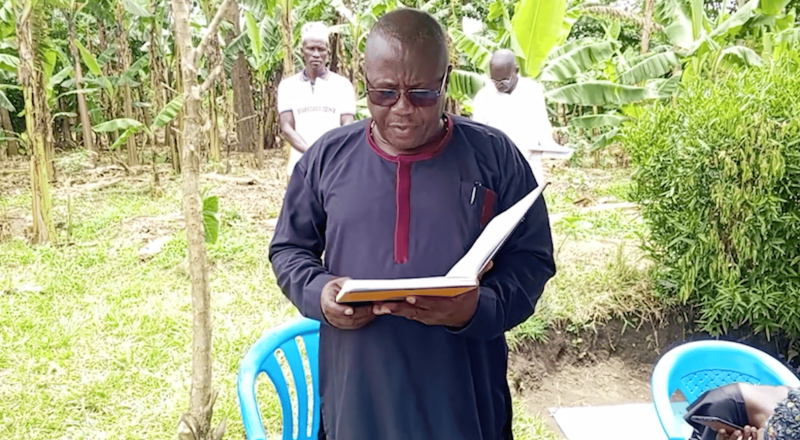Wakiso, Uganda – Residents of Balabala Village, Kizinga-Bussi in Wakiso District are grappling with a worsening HIV crisis, as a lack of functional healthcare facilities pushes expectant mothers to deliver with untrained traditional birth attendants (TBAs). Health officials say this dangerous practice is fueling mother-to-child HIV transmission and threatening an entire generation.
According to local health worker Nampewo Gertrude, HIV prevalence has spiked to 70% in some areas. The surge is attributed to mothers giving birth under unsafe conditions with unskilled TBAs, a consequence of the downgrade of Balabala Health Centre III to a non-functional HC II. Without a government health facility in operation, many pregnant women are forced to make long and costly boat trips to Entebbe for medical care, placing their lives and those of their unborn children at risk.
The consequences are dire. Newborns are being infected with HIV at birth, while families struggle under the weight of poverty, prioritizing basic needs like food over education. Many children have dropped out of school, with economic hardship deepening across the village. As one frustrated village elder put it:
"How many babies must die before the government acts? We’re drowning in neglect!"

During a recent visit, Wakiso LC5 Chairman Dr. Matia Lwanga Bwanika was confronted by angry residents who demanded immediate action. They called for the reopening of Balabala HC III with full maternity services, urgent rollout of HIV testing and antiretroviral (ARV) treatment for affected mothers and children, and a crackdown on unlicensed TBAs. Dr. Bwanika acknowledged the severity of the crisis and promised that the health centre would be upgraded “soon”—with a pledge to complete the work before the end of April.
This crisis reveals a broader pattern of health inequality affecting island and lakeside communities across Lake Victoria. The absence of professional medical services continues to drive up preventable infections, leaving rural populations vulnerable. Without immediate intervention, health experts warn that HIV could devastate communities already on the brink.
The lack of healthcare access is forcing vulnerable women into dangerous deliveries. Without decisive action, Balabala faces a public health time bomb with long-term consequences for its children. The situation also highlights similar struggles in other neglected island communities, where the difference between life and death often comes down to proximity to a health center.
Health authorities must act now to reactivate Balabala HC III with trained midwives, deploy mobile HIV clinics for immediate testing and treatment, and conduct sensitization campaigns discouraging unskilled TBA deliveries.
A 2023 report from the Uganda National Health Survey shows that 48% of births in Kazinga-Bussi occur with TBAs. Meanwhile, the Uganda AIDS Indicator Survey reveals that the mother-to-child transmission rate of HIV in lakeside communities is 22%, nearly three times the national average of 8%.












